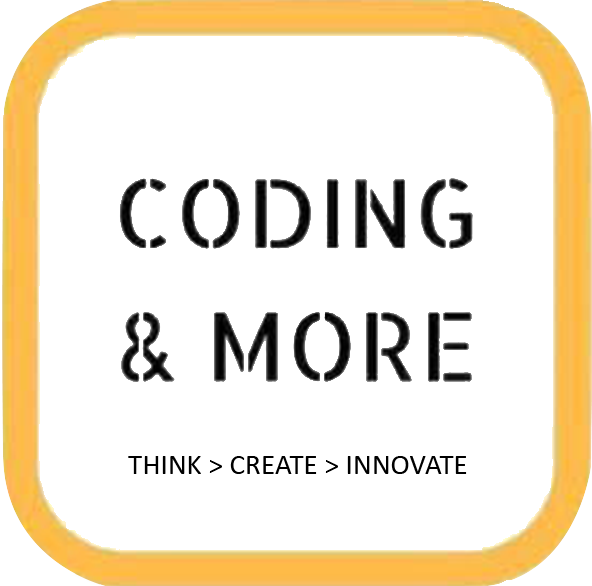AI is Shaping the World
Who Will Shape AI
Artificial Intelligence is no longer the thing of the future; it is the present, and it is ever-growing. Imagination and creativity are at its peak for young children while they spend most of their time in the connected world. Exposure to courses on AI and coding equips them with the necessary tools to become active creators rather than passive consumers in this ever-advancing day & age.
At Coding and More we have curated a personalized, age-appropriate curriculum that is differentiated according to every child’s changing need. We make optimal use of various hands-on learning tools available to us to teach children, as young as 7 years to 18 years, the necessary skills and technical knowledge required to flourish in the modern, digital era.
This curriculum makes education in technology accessible, relevant and fun for the children. Our mission at Coding and More is to inspire, engage and empower each and every student we teach. Our curriculum follows the framework laid out by leading scholars from the steering committee at AI4K12 in conjunction with AAAI and CSTA. The AI4K12 is a consortium of professors from well-renowned universities like Carnegie Mellon University, MIT, University of Florida etc. Their guidelines are organised around the 5 big ideas of AI.At Coding and More we have curated a personalized, age-appropriate curriculum that is differentiated according to every child’s changing need. We make optimal use of various hands-on learning tools available to us to teach children, as young as 7 years to 18 years, the necessary skills and technical knowledge required to flourish in the modern, digital era.
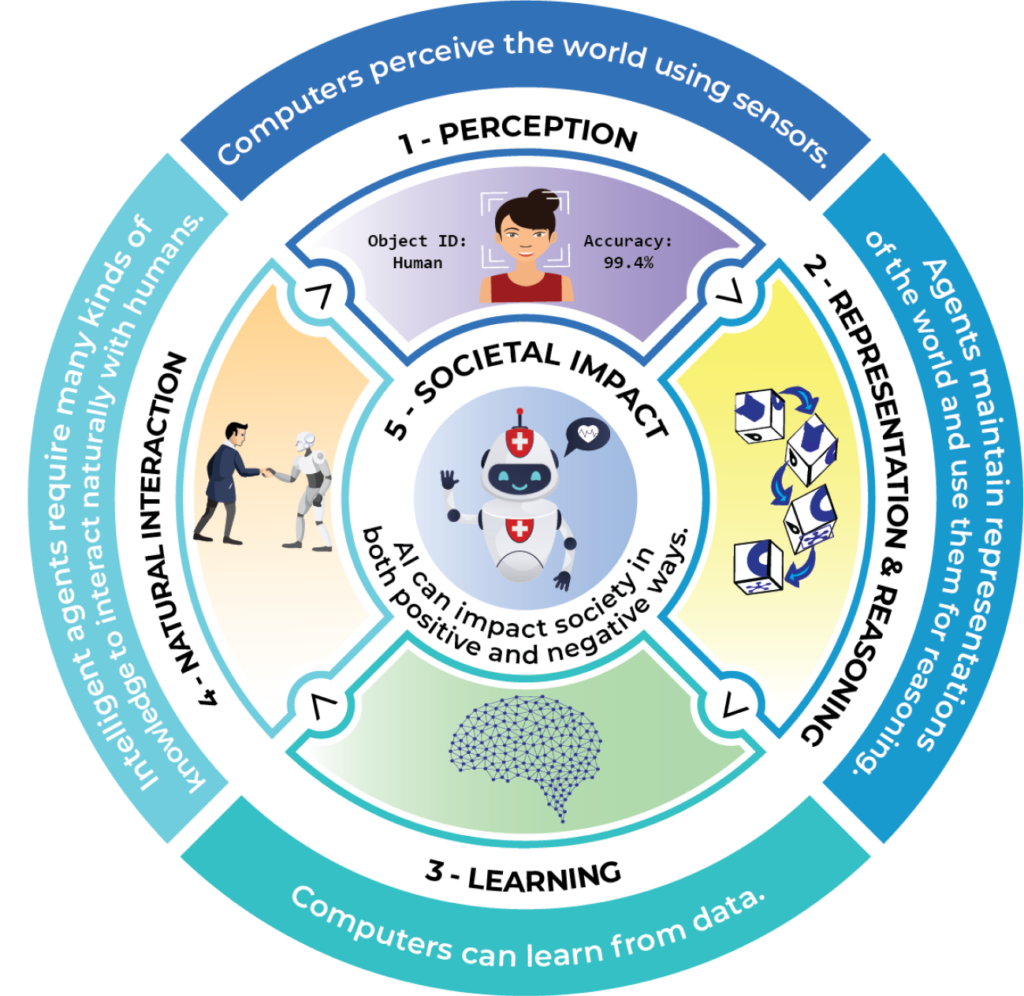
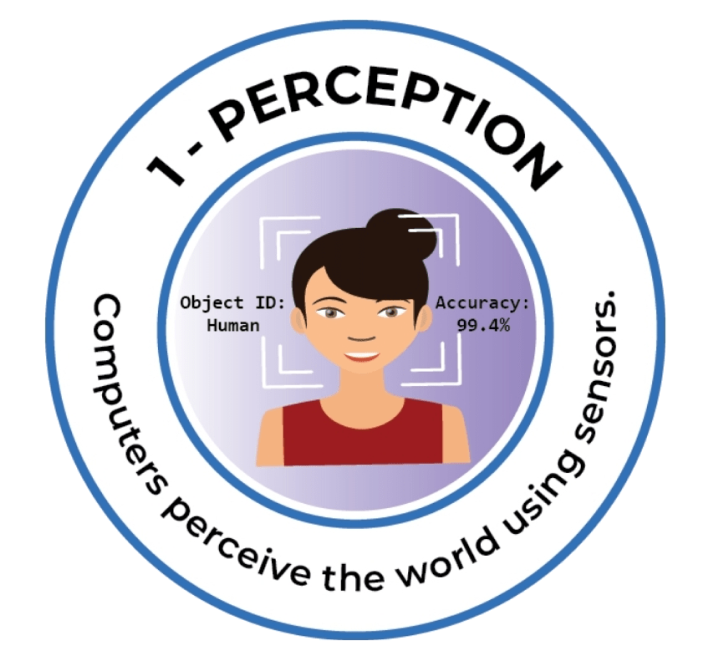
Perception
Computers perceive the world using sensors. Perception is the process of extracting meaning from sensory signals. Making computers “see” and “hear” well enough for practical use is one of the most significant achievements of AI to date.

Perception
Computers perceive the world using sensors. Perception is the process of extracting meaning from sensory signals. Making computers “see” and “hear” well enough for practical use is one of the most significant achievements of AI to date.
Representation & Reasoning
Agents maintain representations of the world and use them for reasoning. Representation is one of the fundamental problems of intelligence,
both natural and artificial. Computersconstruct representations using data structures, and these representations support reasoning algorithms that derive new information from what is already known. While AI agents canreason about very complex problems,
they do not think the way a human does.
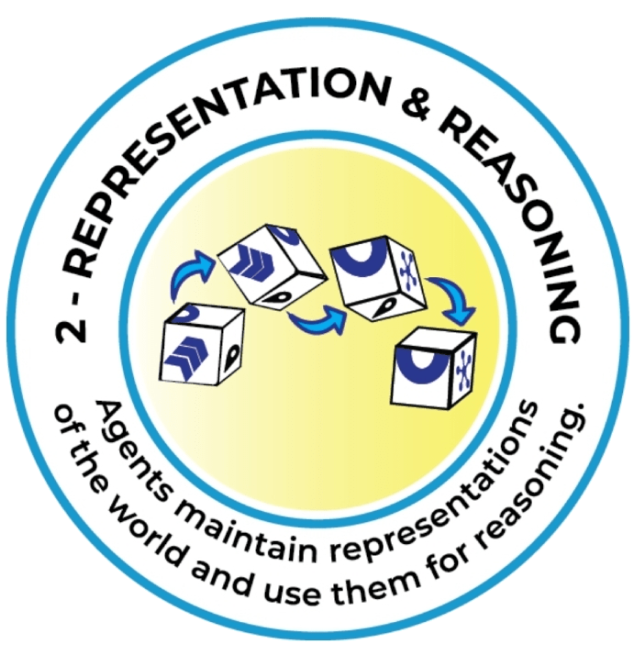

Representation & Reasoning
Agents maintain representations of the world and use them for reasoning. Representation is one of the fundamental problems of intelligence,
both natural and artificial. Computersconstruct representations using data structures, and these representations support reasoning algorithms that derive new information from what is already known. While AI agents canreason about very complex problems, they do not think the way a human does.
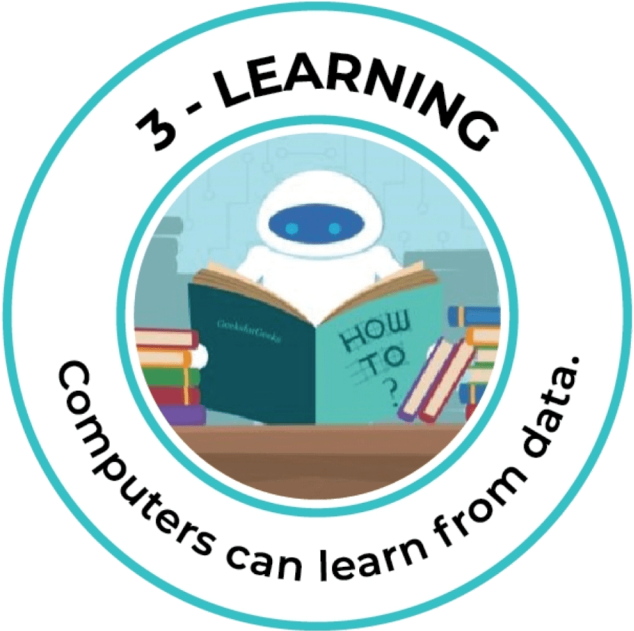
Learning
Computers can learn from data. Machine learning is kind of statistic alinference that finds patterns in data. Many areas of AI have progressed significantly in recent years thanks tolearning algorithms that create new representations. For the approach to succeed,tremendous amounts of dataare required. This “training data” must usually be supplied by people, but sometimes acquired by the machine itself.
Natural Interaction
Intelligent agents require many kinds of knowledge to interact naturally with humans. Agents must be able to converse in human languages, recognize facial expressions and emotions, and draw upon knowledge of culture and social conventions to infer intentions from observed behaviour. All of these are difficult problems. Today’s AI systems can use language to a limited extent, but lack the general reasoning and conversational capabilities of even a child.
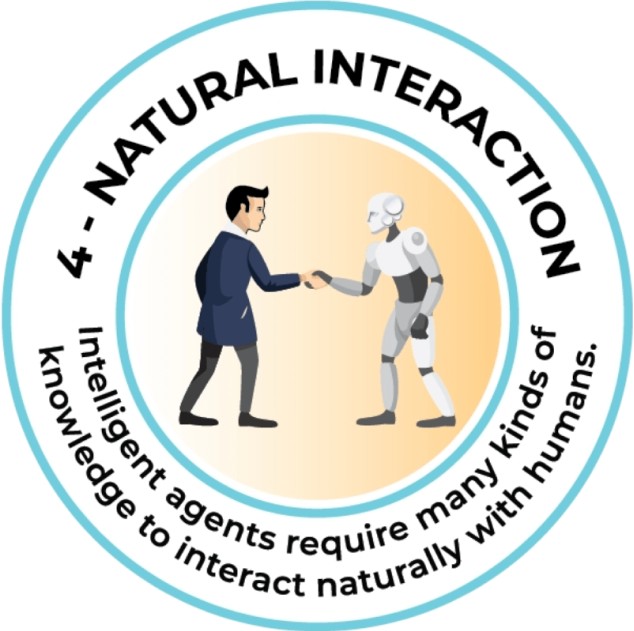
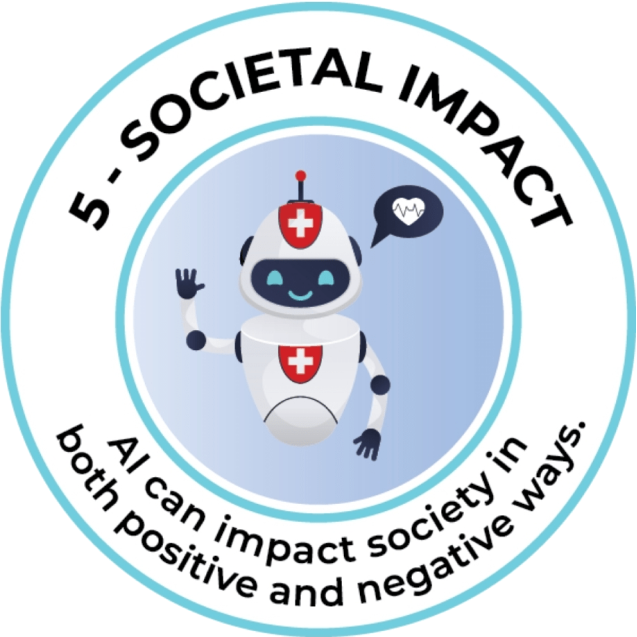
Societal Impact
AI can impact society in both positive and negative ways. AI technologies are changing the ways we work, travel, communicate, and care for each other. But we must be mindful of the harms that can potentially occur. For example, biases in the data used to train an AI system could lead to some
people being less well served than others. Thus, it is important to discuss the impacts that AI is having on our society and develop criteria for the ethical design and deployment of AI-based systems.


